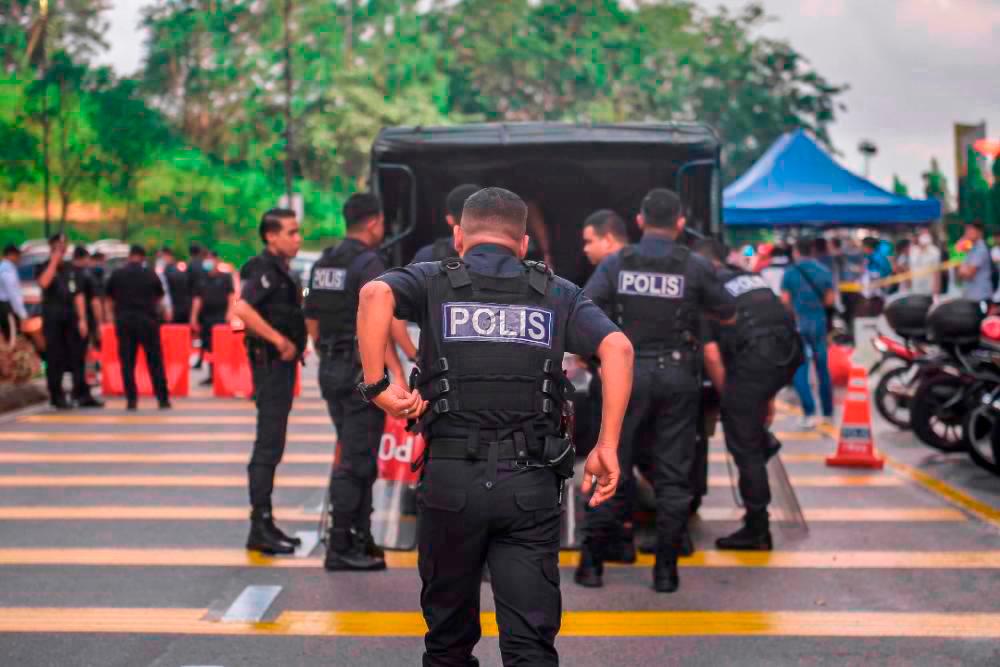Obesity has long been known to be an issue of concern among Malaysians, no thanks to the never-ending supply of delicious food that are laden with sugar, salt, and fat.
And this isn’t limited to the common folk alone, as even police officers have found themselves adding on the extra kilograms, making them unable to carry out their duties effectively.

M’sian police officers must keep BMI below 28 for promotion
In a bid to curb this health problem, the police force is coming up with a method that ties one’s chances to be promoted with their body weight.
Speaking at the police’s monthly assembly today, Inspector-General of Police Tan Sri Razarudin Husain said officers looking to be promoted must ensure their Body Mass Index (BMI) is below 28.
“This is one of the criteria that was recently added to the promotion process so that it becomes stricter than before.
This initiative is important to ensure the health and skills of police officers thus increasing their ability to deliver the best services to the community and country,” he said as quoted by NST.

Razarudin added the police force has also reinforced the promotions process with the implementation of e-Course and Online Competency Assessment (PeKAT) in order to make it more transparent, fair and give equal opportunities to qualified members within its ranks.
What is BMI and how is it measured?
According to NHS, BMI is used to categorise people’s weight and are often used to work out the health of the general population rather than individuals.
There are several factors that can lead to one having low or high BMI levels such as levels of inactivity and exercise, amount of sleep, diet, and medical history.
Generally speaking, BMI is commonly divided into 5 bands:
- Under 18.5 – Underweight.
- Between 18.5 and 24.9 – Healthy range
- Between 25 and 29.9 – Overweight
- Between 30 and 39.9 – Obesity
- 40 or over – Severe obesity
The issue of obesity among police officers isn’t something new, where 2-3% of 10,000 officers were found to be overweight:



